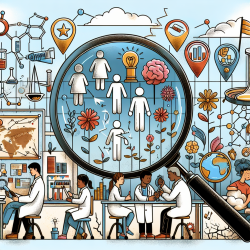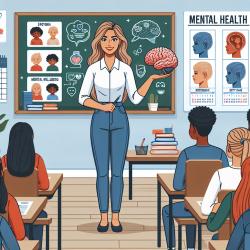As practitioners in the field of speech-language pathology, distinguishing between Specific Language Impairment (SLI) and Global Developmental Delay (GDD) is critical for creating effective treatment plans. The research article, "The Differences in Clinical Aspect Between Specific Language Impairment and Global Developmental Delay," provides valuable insights that can enhance our diagnostic and therapeutic approaches.
The study compared 467 children diagnosed with GDD and 183 children with SLI. The findings revealed that while both groups showed delays in language development, other factors such as motor skills, family history, and cognitive abilities differed significantly between the two groups.
Key Findings and Their Implications
- Motor Development: Children with GDD exhibited a significant delay in independent walking compared to those with SLI. This suggests that motor milestones can be a useful indicator of broader developmental issues.
- Family History: A higher percentage of children with SLI had a family history of language delays. This highlights the importance of taking a comprehensive family history during assessments.
- EEG Abnormalities: EEG abnormalities were more common in children with GDD, suggesting the need for neurological evaluations in cases of GDD.
- Language Abilities: Both groups showed higher receptive language quotients compared to expressive language, but these differences were not significant enough to distinguish between SLI and GDD based solely on language assessments.
- Cognitive Abilities: The GDD group showed lower scores in both mental and motor quotients compared to the SLI group, indicating that cognitive assessments are crucial for accurate diagnosis.
Practical Applications
Implementing these findings into your practice can lead to more accurate diagnoses and effective treatment plans:
- Comprehensive Assessments: Include motor development milestones and family history in your initial evaluations.
- Neurological Evaluations: Consider EEG and other neurological assessments, especially for children suspected of having GDD.
- Holistic Approach: Use cognitive assessments in addition to language assessments to get a complete picture of the child's developmental status.
By incorporating these data-driven insights, you can improve your diagnostic accuracy and create more tailored and effective treatment plans for your young clients. For more detailed information, I encourage you to read the original research paper: The Differences in Clinical Aspect Between Specific Language Impairment and Global Developmental Delay.










